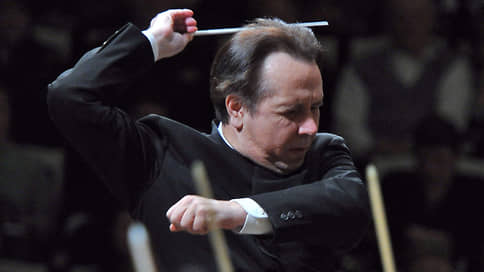The orchestra played for parting – Newspaper Kommersant No. 171 (7372) of 09/16/2022
[ad_1]

The Russian National Orchestra (RNO) has announced that the contract with its artistic director Mikhail Pletnev will not be renewed. The famous orchestra and its famous creator are forced to part, but the team, as a result of this parting, at least gains nothing, believes Sergey Hodnev.
The Russian National Orchestra is already more than thirty years old – it appeared at the end of the USSR, in 1990, and for the first two decades of its existence it was a phenomenon not only performing, but also managerial: is it a joke, not a state, not a municipal, but a private symphony orchestra with excellent fundraising. State funding (one can imagine its scale in the 1990s) is not bound, not crushed by the burden of Soviet administrative traditions. Of course, at that time a lot of more or less ephemeral musical groups and ballet troupes with deceptively loud names appeared, hoping to cut coupons from Western tours. But the RNO had a completely different fate.
Yes, there were touring successes – big and honestly sensational – were, and in great numbers; in 2004, the orchestra even received a Grammy for recording Prokofiev’s Peter and the Wolf (with a modern “sequel” to the musical fairy tale), where the texts of the narrator were read by the late Mikhail Gorbachev, Bill Clinton and Sophia Loren.
However, it turned out to be more eventful that in the early 2000s, the orchestra with a Moscow residence permit turned into a priority ornament of the capital’s symphonic life. These were incredibly interesting, exceptional, unforgettable concerts – with Mikhail Pletnev himself or with foreign conductor stars, who at that time, in fact, almost no one else invited, and eighteen years ago, the capital’s audience rushed to them, let’s say, not with such exaltation, but with the same confidence in a miracle, as in more recent times – at the concerts of Teodor Currentzis.
Since then, a lot has changed, the balance of power on the Moscow Philharmonic stage by the beginning of the 2010s was already completely different, but the orchestra and its artistic director did not give up their positions. In 2009, the RNO parted ways with its independent status and became state-owned, but its projects became more ambitious: the Grand RNO Festival appeared, giving a solemn start to the entire metropolitan philharmonic season. Until the year before last: in September 2020, despite the covid restrictions, the next festival of the Russian National Orchestra – already the twelfth in a row – still took place, and, as usual, with the participation of Mikhail Pletnev.
But then difficulties began: now the orchestra reports that “since the end of 2020, there has been no close creative contact between the orchestra and its artistic director,” since Mikhail Pletnev “is most of the time outside the country.” Earlier, the Ministry of Culture fired the long-term director of the RNO Svetlana Rips and replaced her with the director of the Moscow State Academic Symphony Orchestra, Irina Shigoreva (which gave rise to rumors about the merger of the two orchestras, which have not yet been confirmed).
Mikhail Pletnev himself, who lives in Switzerland, does not find it possible to perform in Russia in the current situation, but has already announced that he is creating a new orchestra, the Rachmaninoff International Orchestra, in which RNO musicians who have left Moscow should unite with European colleagues.
For orchestra members who do not want or cannot leave, the situation is really stalemate, and yet the management of the orchestra, firstly, does not paint the fact that relations with Pletnev after these magnificent three decades will be terminated unilaterally, without even a hint to a civilized amicable parting. So, without the possibility of working together in the future. Secondly, who can replace Mikhail Pletnev? Moreover, we already had enough gaping conductor vacancies in a completely catastrophic way. After the departure of Tugan Sokhiev, there is no musical director at the Bolshoi Theater, in fact, there is no chief conductor at the Svetlanov State Orchestra (Vasily Petrenko decided to suspend cooperation with the team), conductor Valentin Uryupin was forced to leave the Novaya Opera Theater. Of course, one can expect that life, as in the case of Pushkin’s Salieri, will “bring sudden gifts” – nothing else, in fact, remains. But that the glorious era of the great Russian orchestra has irrevocably ended is, alas, quite obvious in any case.
[ad_2]
Source link






